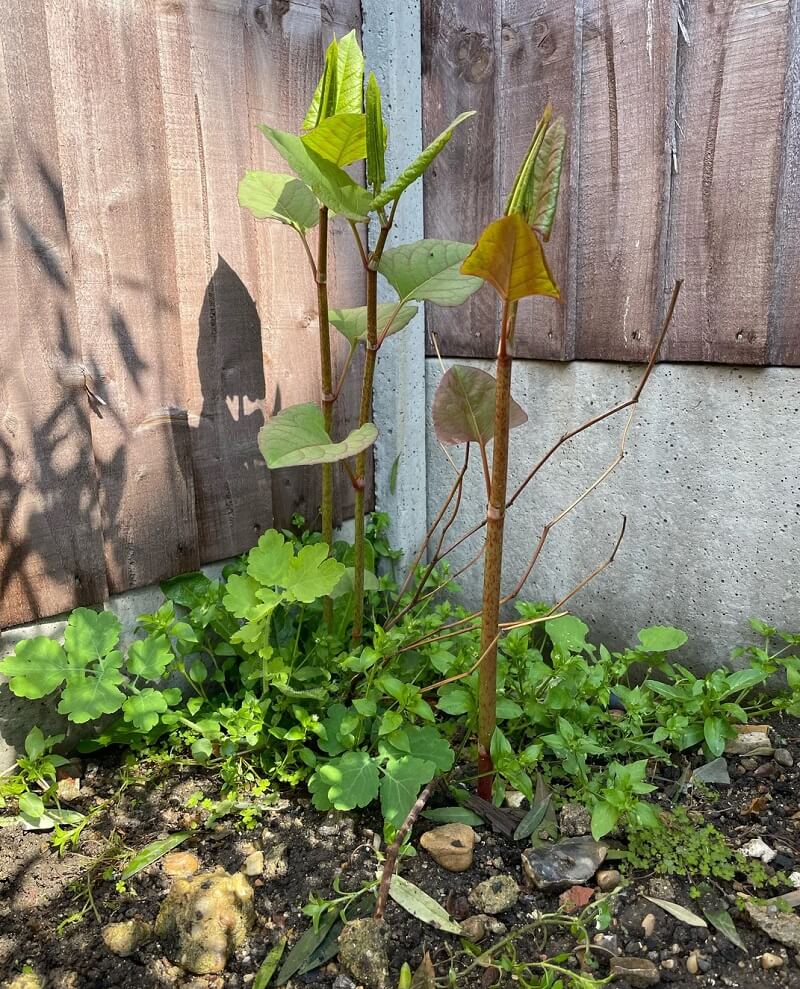A homeowner received undesirable news after other Redditors identified a plant on their property as a notorious invasive species.
"What is this and how do I stop it coming back every few months?" the original poster asked in the r/PlantIdentification community.

An image showed several tall stalks with heart-shaped leaves lined with red veins, and other commenters quickly pointed out it was Japanese knotweed.
According to the National Park Service, this troublesome species was brought over in the 1800s for ornamental purposes in gardens, but it has a "detrimental" effect on ecosystems in the United States. The rapidly growing knotweed is nearly impossible for local wildlife to eat or trample as a means of control, and it ends up outcompeting other species.
This reduces biodiversity, impacting creatures that depend on native plants for food and shelter. In fact, some jurisdictions now ban the sale or distribution of the plant altogether.
Unfortunately, as other Redditors informed the OP, getting rid of it isn't easy for humans, either.
"Also every time it has been cut, it gets stronger. It wants to punish you for cutting it!" a commenter shared of their experience with Japanese knotweed. "However, if you cut it every time it reaches a foot all season long, it will eventually weaken."
While some commenters pointed out that herbicides can help control the plant, someone else suggested using white vinegar to avoid harmful chemicals. However, Knotweed Specialists UK notes that this method only works for knotweed that hasn't flowered.
"Pull it up with the roots. You gotta get the roots!" another person recommended.
While it sounds like the OP has an arduous task through no fault of their own, their situation highlights how mindfully selecting native species for our gardens — or opting for partial natural lawn replacements like clover or buffalo grass — can prevent a massive headache in the long run.
Rewilded yards generally save homeowners hundreds of dollars each year, as they require less water, no fertilizers, and limited pest control. They also support pollinators, a bonus for gardeners who grow their own food. Your wallet and perhaps your neighbors will thank you.
"If it's in your neighbor's yard, it will come back to your yard," one commenter pointed out regarding the Japanese knotweed. "Good luck."
Join our free newsletter for easy tips to save more, waste less, and help yourself while helping the planet.









